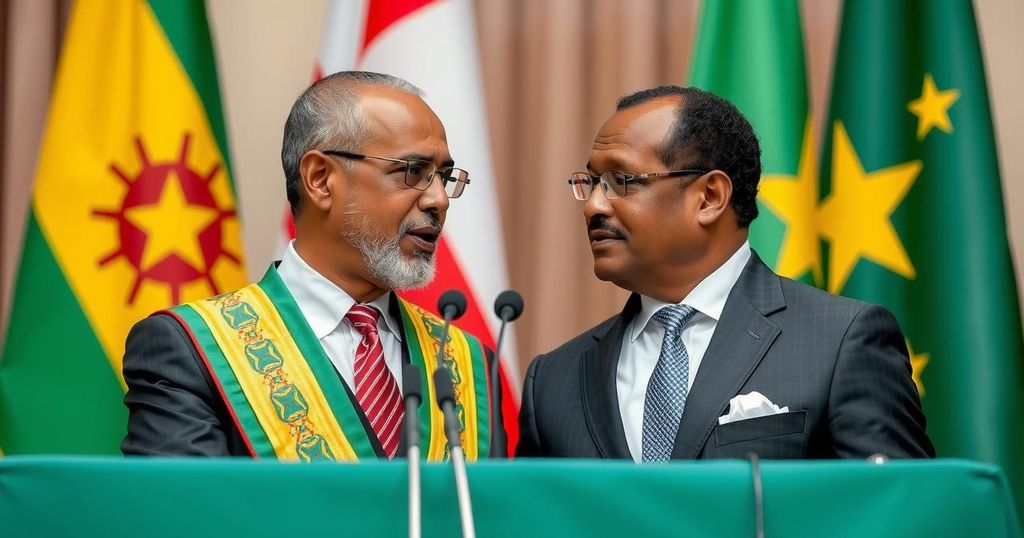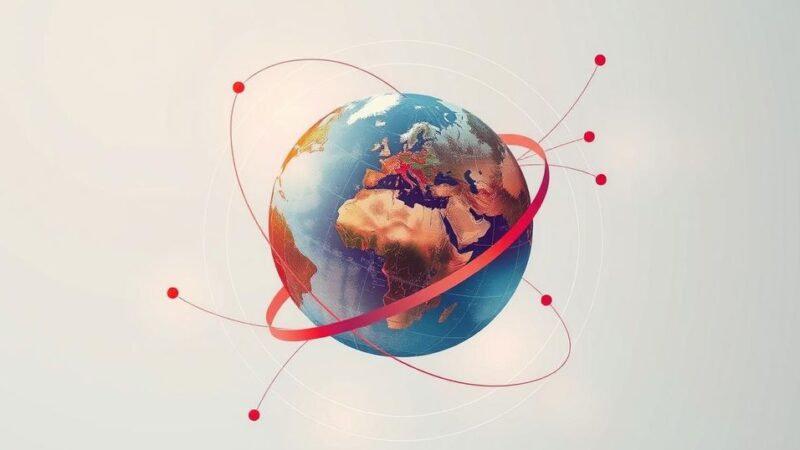Somali President Hassan Sheikh Mohamud is scheduled to meet Ethiopian Prime Minister Abiy Ahmed in Ankara, Turkey, to discuss rising tensions over a maritime agreement between Ethiopia and Somaliland. This meeting, at the request of Ethiopia, represents a critical opportunity to address the ongoing disputes concerning sovereignty and territorial integrity, with previous mediation attempts proving unsuccessful. Somalia anticipates the withdrawal of Ethiopian troops coinciding with the end of the AU mission’s mandate.
The Somali President, Hassan Sheikh Mohamud, is poised to engage in direct discussions with Ethiopian Prime Minister Abiy Ahmed in Ankara, Turkey, according to Somali officials. The meeting, requested by Ethiopia and subsequently accepted by President Mohamud, is anticipated to occur on Wednesday. This marks the first engagement between the two leaders since tensions escalated over a maritime agreement signed by Ethiopia with the self-declared republic of Somaliland at the beginning of the year.
The aforementioned agreement provides Ethiopia with access to a strategically significant stretch of the Red Sea coastline while potentially recognizing Somaliland’s independence – a move that the Somali government deems illegal and an infringement upon its territorial integrity. Despite Ethiopia’s assertion that it respects Somalia’s sovereignty, the Somali administration views Somaliland as an integral part of its territory.
Amid these diplomatic tensions, Somalia expects the withdrawal of Ethiopian troops from its territory by the end of this month, coinciding with the expiration of the African Union Transition Mission’s mandate in Somalia. Previous mediation efforts led by Turkey in July and August did not yield successful resolutions to the dispute, as Somalia insisted on Ethiopia’s withdrawal from its agreement with Somaliland.
In a prior instance in September, President Mohamud declined a meeting with Prime Minister Abiy during an international forum, conditioning future discussions on Ethiopia retracting its decision regarding Somaliland. Further attempts by leaders from Djibouti, Mauritania, Nigeria, and Kenya to facilitate dialogue have also been met with failure, casting uncertainty over the regional stability in the Horn of Africa.
The ongoing political tensions between Somalia and Ethiopia have intensified over Ethiopia’s recent maritime agreement with Somaliland, a territory that declared independence in 1991 but remains unrecognized internationally. The agreement, which allows Ethiopia access to a segment of coastline, has provoked strong objections from Somalia, which claims that it undermines its sovereignty over Somaliland. This issue underscores a broader conflict and the delicate balance of power in the Horn of Africa, with regional implications for governance and stability. Additionally, the expiration of the AU Transition Mission mandate expeditiously amplifies the urgency of navigating these diplomatic negotiations. The backdrop of unsuccessful mediation attempts by various regional leaders further complicates the prospect of reaching a resolution.
The imminent talks between Somali President Hassan Sheikh Mohamud and Ethiopian Prime Minister Abiy Ahmed serve as a crucial moment in addressing escalating tensions over Somaliland. This engagement is particularly significant as it comes after several unsuccessful mediation attempts and amidst Somalia’s expectations for the withdrawal of Ethiopian troops. The outcome of these discussions will likely have substantial implications for the regional dynamics within the Horn of Africa, as the leaders seek to navigate a path forward amid conflicting territorial claims and international recognition challenges.
Original Source: www.voanews.com






